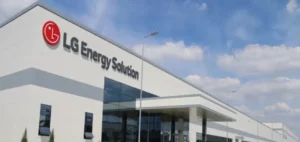Northvolt, a key player in the European lithium-ion battery sector, has officially filed for bankruptcy in Sweden after failing to secure the necessary funding to continue operations. The company, which had raised several billion euros from institutional and industrial investors, was unable to stabilise its financial situation despite restructuring attempts.
An accumulation of financial difficulties
The company faced multiple simultaneous challenges, including rising raw material costs, financial market volatility, and supply chain disruptions. The increase in interest rates also complicated access to the capital needed for its expansion. Additionally, operational difficulties encountered during the scale-up of production weighed on its profitability.
A direct impact on the European industry
Northvolt was considered a strategic project for Europe, aiming to reduce reliance on Asian battery suppliers. Its bankruptcy raises concerns about the continent’s ability to develop a local supply chain for electric vehicle batteries. European car manufacturers that relied on Northvolt to secure their supply may now have to rethink their battery procurement strategies.
Bankruptcy management and the future of assets
A Swedish court-appointed administrator has been assigned to oversee the bankruptcy process, including the sale of assets and debt settlements. The company owns several production and research facilities, whose fate will be determined through judicial proceedings. Investors may show interest in acquiring certain strategic assets, but uncertainties remain regarding the continuation of Northvolt’s activities in any form.
Consequences for employment and the industrial sector
Northvolt’s bankruptcy has direct implications for its employees and subcontractors. Several thousand jobs are affected, particularly at its production sites in Sweden. Local authorities and labour organisations are closely monitoring the situation, while the Swedish government may need to intervene to mitigate the economic impact on affected regions.
Outlook for the European battery market
The collapse of Northvolt raises questions about the competitiveness of the European battery sector compared to Asian manufacturers. The viability of similar projects will depend on companies’ ability to ensure stable access to funding and control production costs. This bankruptcy may also prompt European governments to reassess their support policies for the sector to ensure sustainable industrial development.





















